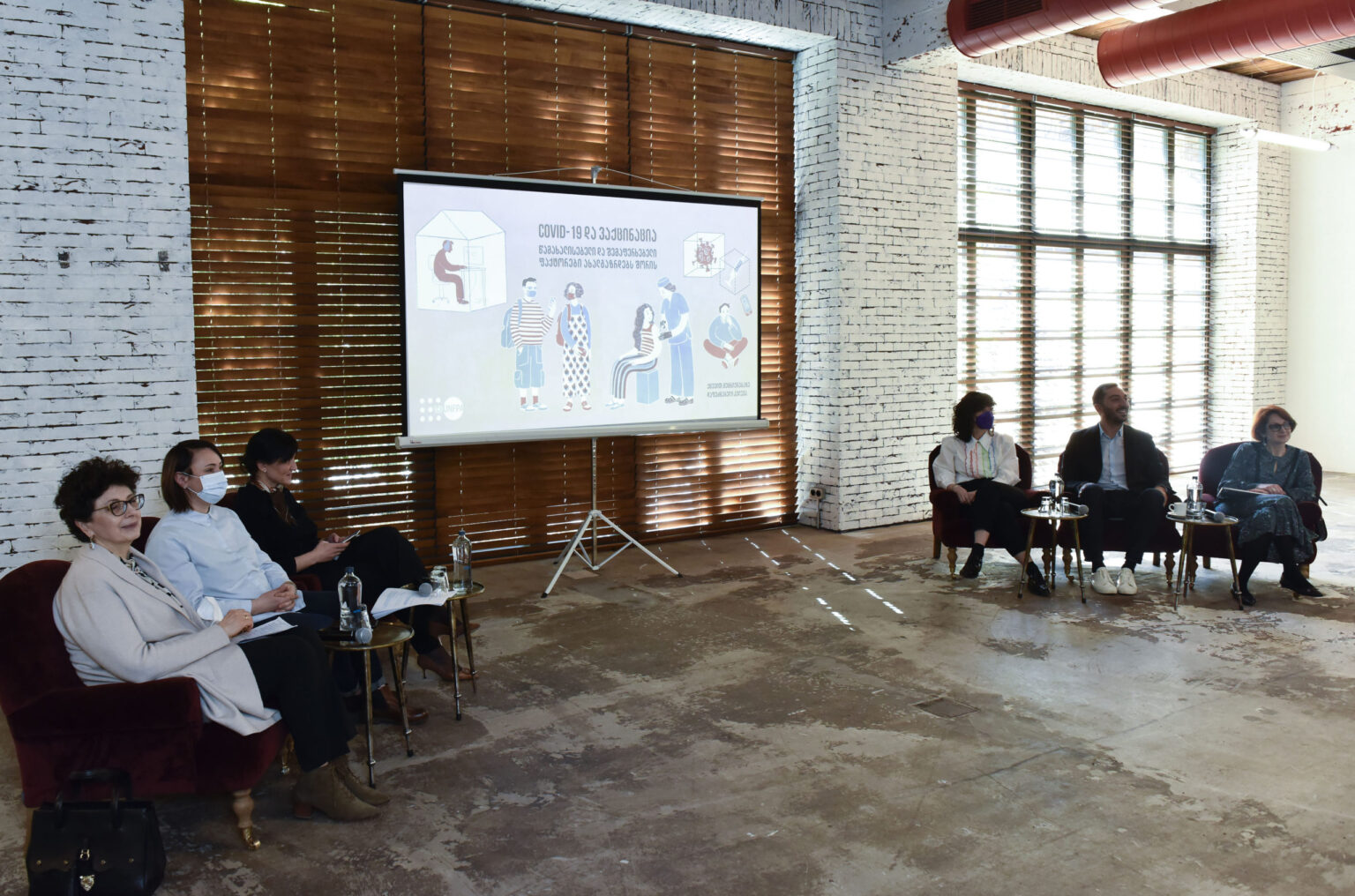The United Nations Population Fund (UNFPA), Georgia Country Office, organized a presentation of the study entitled “COVID-19 vaccine uptake among young people: Key factors influencing the COVID-19 vaccine uptake”. Ms Lela Bakradze from the United Nations Population Fund’s Georgia Country Office gave an opening speech. The study was presented by Dr Bidzina Kulumbegov, allergist-immunologist, Dr Ana Kasradze, Head of the Public Health Preparedness and Response Division, National Center for Disease Control and Public Health, Dr Marina Topuridze, Head of the Working Group on COVID-19 Vaccine Communication, NCDC, Ms Ketevan Gomelauri, Expert in Behavioural Science, and Ms Natalia Zakareishvili, Programme Analyst, UNFPA.
The study was initiated and conducted by the United Nations Population Fund in collaboration with the Youth Agency of Georgia in five regions of Georgia – Kvemo Kartli, Shida Kartli, Samtskhe – Javakheti, Imereti, and Tbilisi. The study aims to explore and analyze the challenges, barriers and factors that facilitate COVID-19 vaccination uptake. The study was designed to assess the determinants and barriers of COVID-19 vaccination among young people aged between 18 and 29. In addition, it revealed the factors that influence their attitudes and perceptions, and ultimately, their decision regarding vaccination.
The study identified the following factors as deterrents:
Conspiracy theories and Vaccine Myths have a significant effect on the COVID-19 vaccination uptake by young people. Not only do myths about vaccines influence vaccine uptake, but also those directly related to the virus. One of the most common COVID-19 myths is that vaccination could affect reproductive health. This myth is responsible for hesitancy in women and men who are of reproductive age.
Safety Issues – The safety of vaccines and their efficacy are still in question, even among the study population that has already been vaccinated. It is difficult to gain trust in both the medical staff and the vaccine suppliers.
Inconsistent policies and inconsistent approaches can cause dissatisfaction in vaccinated individuals, who may question the need for additional doses of COVID-19, and also reinforce distrust among the study population.
Access to information is a problem for rural people and minorities. This target population is largely unaware of the truth, which makes it easy for myths to spread.
According to data from (January) 2022, 35 percent of 18-19-year-olds and 38 percent 20-29-year-olds received a double dose of COVID-19. Georgia is facing serious challenges. The vaccination process has slowed in the country, and vaccines are still unused. This is a concern as the immunization target has not been met. To achieve herd immunity it is crucial to increase the proportion of vaccinated people. Statistics show that continual interventions, such as general communication strategies and tightening measures have some impact on vaccination. However, progress has been negligible among young people.
The study found that when developing integrated and targeted communication strategies to encourage vaccination among young people, it is important to consider both their needs and abilities, as well as the key characteristics of individual behaviour.
Read More @ georgiatoday.ge




